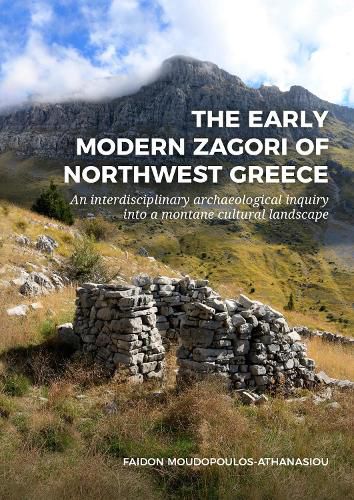Readings Newsletter
Become a Readings Member to make your shopping experience even easier.
Sign in or sign up for free!
You’re not far away from qualifying for FREE standard shipping within Australia
You’ve qualified for FREE standard shipping within Australia
The cart is loading…






Landscape-archaeology projects have had a significant impact on our understanding of the deep history of the Greek countryside, but have overwhelmingly been limited to the plains and have rarely placed the Ottoman period at their core. This investigation of Zagori in Northwest Greece explores the archaeology and cultural history of a mountainous area that famously thrived in the Ottoman period.
This engagement with an upland region in the early modern period sheds light on previously neglected aspects of Greek landscape history. The inclusive methodology combines critical historiography, archival research, oral history and landscape-archaeological survey to achieve novel insights into this montane landscape and its distinctive history and cultural heritage.
Contrary to the dominant nationalist historiography, it demonstrates the continuity of regional elites from the Byzantine to Ottoman period in Epirus and reveals how this shaped settlement patterns and elite/non-elite sedentary adaptations in this montane region. It also gives voice from within to the labour-intensive, engendered, cultural landscape of the Zagori peasantry and challenges the view of external scholarly observers that mountains support a predominantly pastoral way of life.
$9.00 standard shipping within Australia
FREE standard shipping within Australia for orders over $100.00
Express & International shipping calculated at checkout
Landscape-archaeology projects have had a significant impact on our understanding of the deep history of the Greek countryside, but have overwhelmingly been limited to the plains and have rarely placed the Ottoman period at their core. This investigation of Zagori in Northwest Greece explores the archaeology and cultural history of a mountainous area that famously thrived in the Ottoman period.
This engagement with an upland region in the early modern period sheds light on previously neglected aspects of Greek landscape history. The inclusive methodology combines critical historiography, archival research, oral history and landscape-archaeological survey to achieve novel insights into this montane landscape and its distinctive history and cultural heritage.
Contrary to the dominant nationalist historiography, it demonstrates the continuity of regional elites from the Byzantine to Ottoman period in Epirus and reveals how this shaped settlement patterns and elite/non-elite sedentary adaptations in this montane region. It also gives voice from within to the labour-intensive, engendered, cultural landscape of the Zagori peasantry and challenges the view of external scholarly observers that mountains support a predominantly pastoral way of life.